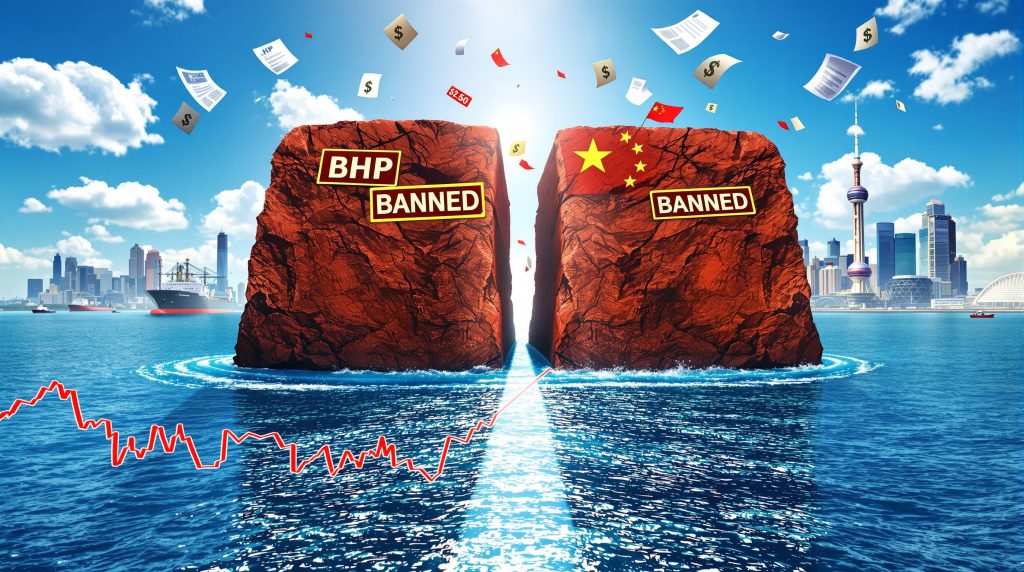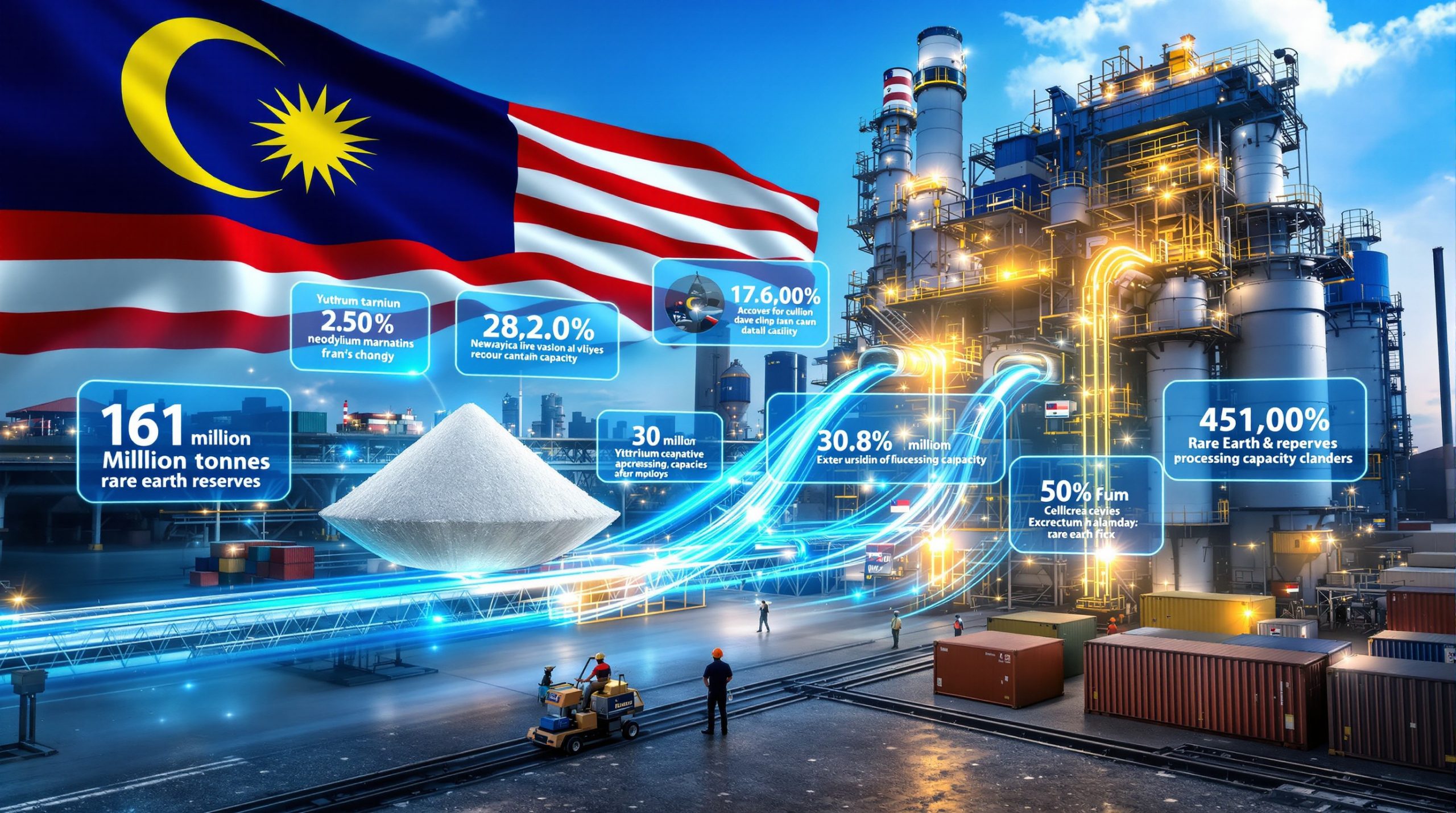China's Iron Ore Ban: Understanding the Impact on Australian Mining
China has implemented a temporary ban on new iron ore imports from BHP Group Ltd, one of Australia's largest mining companies. This decision emerged from a pricing dispute between BHP and China Mineral Resources Group (CMRG), which represents over 50% of Chinese steelmakers in negotiations with global iron ore suppliers. The ban specifically targets new dollar-denominated seaborne iron ore contracts, including cargoes already in transit but not yet landed in China.
Key Elements of the Ban
-
Chinese steel mills and traders have been instructed to suspend new BHP iron ore purchases
-
Existing cargoes already landed in China remain tradable
-
The ban appears to be a negotiating tactic rather than a permanent embargo
-
BHP continues shipping iron ore to China despite the suspension
Why Has China Implemented This Iron Ore Ban?
The core of the dispute centers on pricing models and contract negotiations. BHP and CMRG have reached an impasse over how iron ore should be priced in long-term volume contracts.
The Pricing Dispute Explained
-
BHP's position: Prefers annual pricing tied to benchmark averages, seeking to maintain higher price points for their product
-
Chinese buyers' position: Demand quarterly pricing linked to lower spot prices, potentially saving approximately $15 per ton
-
Contract adjustments: Disagreement over how grade and impurity adjustments should be factored into benchmark prices, a crucial element in determining final costs
China's Strategic Motivations
-
Consolidation of buying power through CMRG, formed specifically to gain leverage over major miners
-
Growing resource nationalism and assertiveness in managing critical imports for its steel industry
-
Efforts to control costs amid challenging conditions in China's steel industry, which has faced margin pressures
How Is the Ban Affecting BHP and Other Australian Miners?
The BHP share price has experienced volatility since reports of the china iron ore ban emerged in early October 2025. Market analysts suggest the impact remains relatively modest so far, but there are signs of softening shipments.
Current Impact on BHP
-
BHP's shipments to China have softened since mid-August 2025
-
Market share has declined from approximately 32% to 26% according to UBS Evidence Lab data
-
Some of this decline may be attributed to scheduled maintenance and ongoing rail technology works, complicating the assessment of ban-related impacts
Potential Longer-Term Consequences
-
BHP appears more vulnerable than competitors due to its high reliance on the Chinese market
-
The company ships approximately 85% of its Pilbara iron ore volume to China, making market diversification challenging
-
If the ban persists, BHP may need to find alternative markets for its iron ore, potentially at less favorable pricing
Comparative Vulnerability of Major Miners
| Mining Company | Percentage of Iron Ore Shipped to China | Perceived Vulnerability |
|---|---|---|
| BHP Group | 85% | Higher |
| Rio Tinto | 79% | Medium |
| Fortescue | 87% | Higher |
Will the China Iron Ore Ban Last Long?
Industry analysts believe the ban will likely be short-term due to the mutual dependence between BHP and Chinese steel producers. Historical patterns suggest trade disputes between Australia and China eventually resolve through negotiation.
Factors Suggesting a Short-Term Ban
-
Interdependence of Chinese steel industry and Australian iron ore makes prolonged disruption impractical for both sides
-
Historical patterns of trade disputes eventually resolving through negotiation after initial posturing
-
Practical challenges of China finding alternative suppliers at scale, given Australia's dominance in high-grade iron ore
Market Rebalancing Scenarios
If the ban continues for an extended period, market experts anticipate a rebalancing of global iron ore trade:
-
Higher prices for non-BHP iron ore brands in the short term as Chinese buyers scramble for alternatives
-
Trade shifts from ex-China markets into China as other suppliers prioritize the Chinese market
-
BHP cargoes formerly destined for China redirecting to other markets, potentially creating oversupply in those regions
-
Gradual normalization through market adjustments, similar to previous trade disputes between Australia and China
How Might the Global Iron Ore Market Respond?
The ban has implications beyond just BHP and China, potentially affecting iron ore price trends and trade patterns as the market adjusts to the new dynamics.
Potential Market Adjustments
-
Price premiums for non-BHP iron ore in the immediate term as Chinese buyers compete for alternative supplies
-
Increased freight costs as trade routes adjust to accommodate new shipping patterns
-
Possible opportunities for Brazilian and African miners to increase market share if they can ramp up production
Price Forecast Amid Uncertainty
Iron ore prices are expected to remain volatile in the near term due to:
-
Ongoing geopolitical tensions affecting supply chains
-
Supply chain adjustments as traders and miners adapt to the new market conditions
-
China's efforts to diversify suppliers beyond traditional Australian sources
-
Potential resolution of the current dispute, which could quickly normalize market conditions
What Are the Geopolitical Implications of the Ban?
The iron ore dispute occurs within a broader context of Australia-China relations and global resource politics. It represents another chapter in the complex relationship between the two nations.
Australian Government Response
-
Australian officials are monitoring the situation closely and urging China to allow unhindered iron ore exports
-
The government emphasizes the mutual economic benefits of the trade relationship while working through diplomatic channels
-
Policymakers are weighing the balance between assertiveness and pragmatism in their approach
China's Diversification Strategy
-
Increased investment in African iron ore projects, particularly in Guinea's Simandou region
-
Strengthened relationships with Brazilian miners, including potential long-term supply agreements
-
Development of the Simandou project in Guinea as an alternative source, though full production remains years away
How Should Investors View BHP Shares Amid This Uncertainty?
Despite the current volatility, analysts maintain cautiously optimistic outlooks on BHP shares, recognizing both the challenges and the company's underlying strengths.
Analyst Perspectives
-
UBS maintains a neutral rating on BHP with a price target of $43
-
This suggests potential for modest 2% growth over the next year, reflecting both risks and opportunities
-
The broker views BHP as more vulnerable than Rio Tinto partly due to Rio's involvement in the Simandou joint venture in Guinea
Investment Considerations
-
BHP's diversified portfolio extends beyond iron ore to copper and other minerals, providing some buffer against iron ore price decline
-
The company's recent capital expenditure boost for Olympic Dam copper production demonstrates strategic pivoting to other metals
-
Historical resilience through previous trade disputes and market cycles suggests potential to weather the current challenges
What Lessons Can Be Drawn from Previous Trade Disputes?
This is not the first time Australia and China have experienced trade tensions, and previous disputes offer insights into potential outcomes and resolution pathways.
Historical Precedents
-
Previous soft ban on Australian metallurgical coal imports eventually led to market rebalancing
-
Initial market disruption followed by trade adjustments as buyers and sellers found workarounds
-
Resolution through diplomatic channels and market adjustments rather than formal agreements
Key Differences in the Current Situation
-
CMRG's consolidated buying power represents a new dynamic that strengthens China's negotiating position
-
China's steel industry faces different economic pressures than in previous disputes, with greater emphasis on cost control
-
Global supply chain resilience has been tested by recent geopolitical events, potentially affecting market responses
How Does This Dispute Fit into Broader Resource Nationalism Trends?
The iron ore ban reflects growing resource nationalism globally, with implications for mining companies and resource-dependent nations navigating an increasingly complex geopolitical landscape.
Global Resource Nationalism Context
-
Increasing government intervention in critical mineral supply chains across multiple jurisdictions
-
Growing emphasis on domestic resource security and strategic autonomy in key economies
-
Rising tensions between resource-rich nations and major consumers as competition for resources intensifies
Strategic Implications for Mining Companies
-
Greater need for geographic diversification of customers to mitigate country-specific risks
-
Increased importance of government relations capabilities and political risk assessment
-
Rising premium on supply chain resilience and flexibility to adapt to sudden market changes
FAQ: China's Iron Ore Ban and Its Implications
How significant is China to Australia's iron ore industry?
China is the primary destination for Australian iron ore, accounting for approximately 80-87% of exports from major miners like BHP, Rio Tinto, and Fortescue. This overwhelming dependence makes the Chinese market critically important to Australia's resource sector and national economy. Recent iron ore demand insights suggest this relationship will remain crucial despite current tensions.
Could other Australian miners face similar bans?
While the current ban specifically targets BHP, there is potential for similar actions against other Australian miners if pricing disputes escalate. However, factors like Rio Tinto's involvement in the Simandou joint venture may provide some protection by aligning their interests more closely with China's long-term resource strategy. Furthermore, tariffs impact markets beyond just the directly targeted companies.
What alternatives does China have for iron ore imports?
China is actively developing alternative sources, particularly in Brazil and Africa. The Simandou project in Guinea represents a significant potential alternative with estimated reserves of 2.4 billion tonnes of high-grade iron ore, though development timelines extend several years into the future, limiting its immediate impact on the current situation.
How might this dispute affect iron ore prices?
Short-term price volatility is likely, with potential premiums for non-BHP iron ore as Chinese buyers secure alternative supplies. Market adjustments will eventually occur as traders and miners adapt to the new conditions, though the transition period may see significant price fluctuations depending on the duration of the ban. Recent onslow haulage updates suggest some miners are already adjusting operations in response to changing market conditions.
Want to Be Alerted to the Next Major Mineral Discovery?
Don't miss out on potential investment opportunities like those discussed in this article. Discovery Alert's proprietary Discovery IQ model provides instant notifications for significant ASX mineral discoveries, helping you make informed investment decisions ahead of the market. Start your 30-day free trial today at https://discoveryalert.com.au/.




